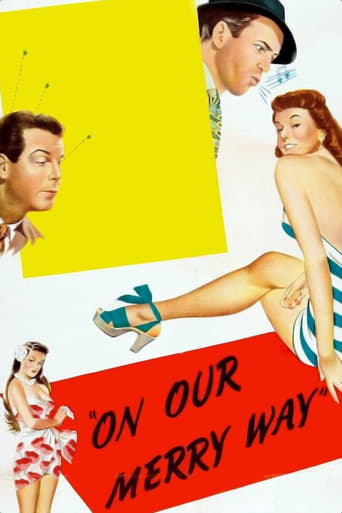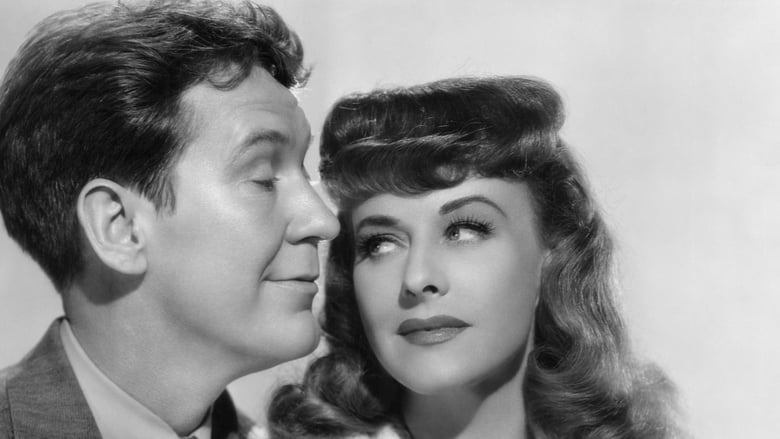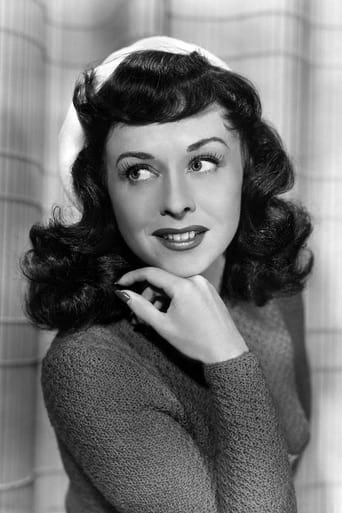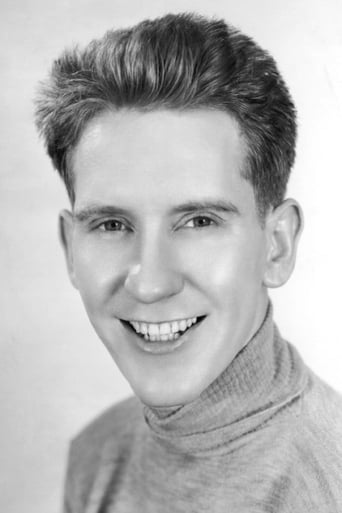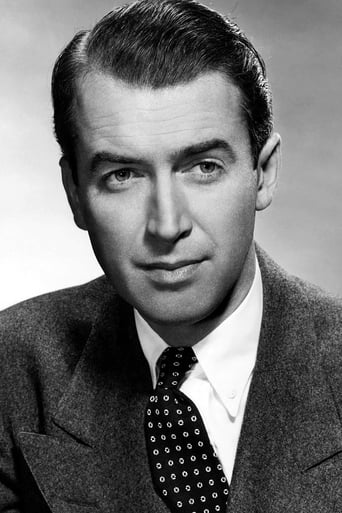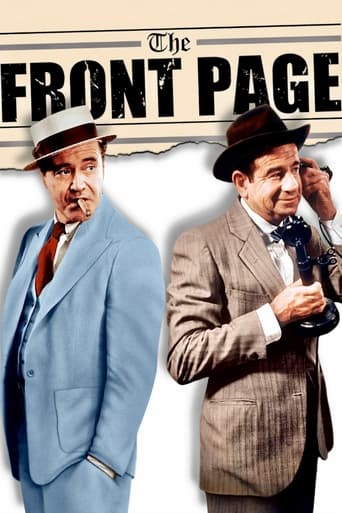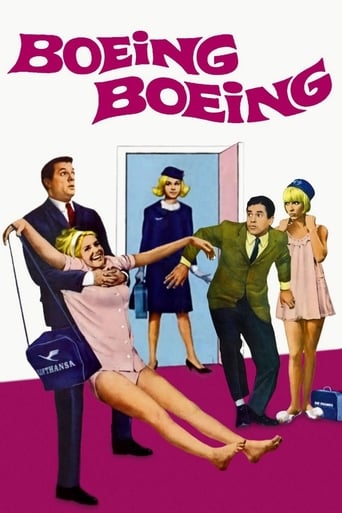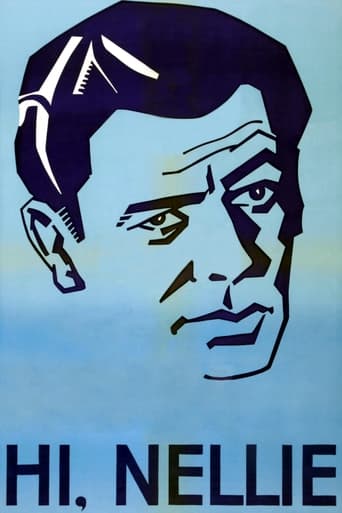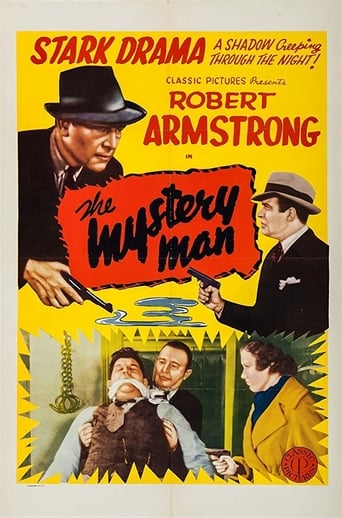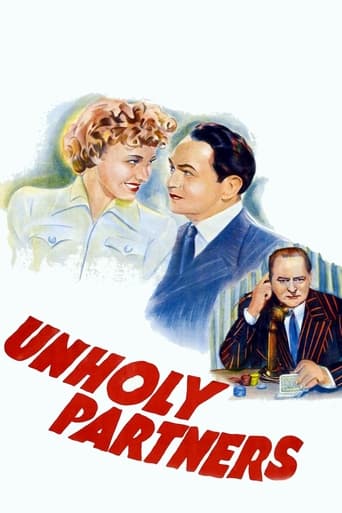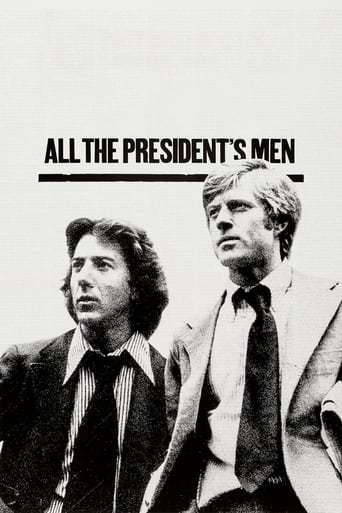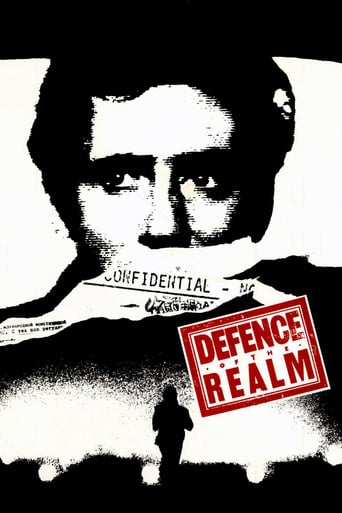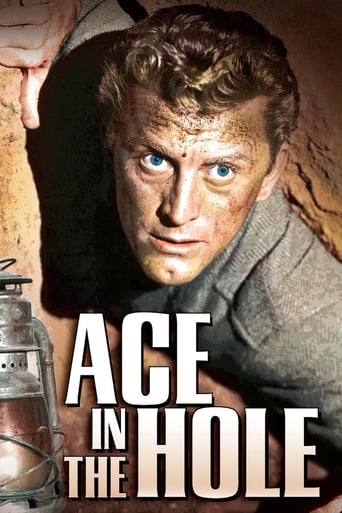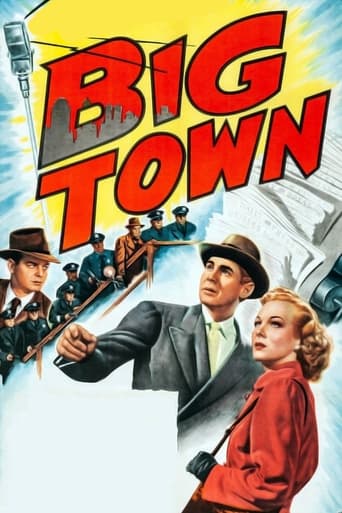On Our Merry Way (1948)
Oliver Pease gets a dose of courage from his wife Martha and tricks the editor of the paper (where he writes lost pet notices) into assigning him the day's roving question. Martha suggests, "Has a little child ever changed your life?" Oliver gets answers from two slow-talking musicians, an actress whose roles usually feature a sarong, and an itinerant cardsharp. In each case the "little child" is hardly innocent: in the first, a local auto mechanic's "baby" turns out to be fully developed as a woman and a musician; in the second, a spoiled child star learns kindness; in the third, the family of a lost brat doesn't want him returned. And Oliver, what becomes of him?
Watch Trailer
Cast


Similar titles
Reviews
Sorry, this movie sucks
Overrated
Did you people see the same film I saw?
A Masterpiece!
I only saw the first half of this film so can't comment on it as a whole, but do not be deceived into thinking that this is some uncute story about cute babies, mother love, and sacrifice. The only two directors who shot successful sequences involving babies are Howard Hawks and Sergei Eisenstein. Well, Charlie Chaplin in "The Kid", if you want to stretch the definition.Burgess Meredith wakes up one morning with his wife Paulette Goddard -- sleeping in THE SAME BED. Already, you can envision how disgusting and vulgar this movie will be. Not really, of course. The same-bed business broke one of the movie code's rules in 1948 but the stories are innocent. At any rate, this introduction is frenzied and excessively chipper. Meredith and Goddard constantly run, shout loudly, and sing during a shower. It's exhausting to watch.Meredith, a reporter pursued by bookies, imitates one of those inquiring photographers of the period. This is Los Angeles at a time when newspapers were the chief source of news, and they were ubiquitous. I was interviewed by a representative of the New York Daily News while I was eating a knish on the sidewalks of Springfield Avenue in Irvington, New Jersey. The question had to do with the transfer of the Dodgers' franchise from Brooklyn to Los Angeles. I didn't know the meaning of the word "franchise." When it showed up in print I sounded like the financial manager of a professional ball team.Where was I? Yes, the movie. Meredith dreams up his question of the day: "In what way has a baby influenced your life?" The first story that Meredith gets from ordinary people is about the song "Melancholy Baby." The episode features Henry Fonda and Jimmy Stewart as itinerant musicians who've been force into staging a musical contest on a pier and rigging it so that the mayor's son wins, though he can't play anything on the trumpet but clinkers. The plan is for trumpeter Fonda to play the song from a rowboat under the pier while the mayor's son just tries to finger the valves. It works until the boat begins to bob up and down. Fonda's playing is increasingly erratic. The judge, Harry James, winces. The scenes is hilarious, with Stewart trying to lead the band and help the phony candidate. He winds up with a lemon stuffed into his mouth.It's good to see Fonda and Stewart together. They work perfectly off one another and were pals in real life despite their opposing political positions, Stewart conservative, Fonda liberal. They shared quarters early in their careers in Provincetown and were plagued by stray cats. They painted one of the cats purple, hoping it would scare off the rest. Instead they wound up with the same dozen cats, only now one of them was purple.Meredith gets the story in his notebook and takes off, still pursued. He stumbles into the house of a movie star, Dorothy Lamour, and asks her if she's ever had a baby. "It's not true," she replies spiritedly, "I only met him twice." The baby in this story is a Shirley Temple figure who is petty and demanding while a movie is shooting. Lamour gets to sing two song in a sarong. One of them echoes her personal history -- born in New Orleans, elevator operator in Chicago, and so forth. This episode, too, is funny, especially the climax, a parody of Lamour's 1937 movie, "The Hurricane." That's about as far as I got. It's a light-hearted and fast-paced comedy. You'll probably enjoy it.
You never know what gems the vaults will deliver. The 1948 musical comedy On Our Merry Way has a self-reflexivity 60 years ahead of its time.The main and three subplots show women commanding the character and strength that saves their men. They play on various forms of a "baby." In one two roving conmen (Fred Macmurray, William Demarest) are trapped by the evil 10-year-old they hope to return home for a cash reward. Shades of O. Henry's "Ransom of Red Chief." The brat's older sister is the only sane, competent member of the family, including the crazed bank manager uncle. Then a spoiled rotten child star is shown her selfish ways and atones by boosting the careers of a washed-up old actor (Victor Moore) and a pretty starlet who blossoms when she dons a sarong. The starlet is Dorothy Lamour, who performs a spirited parody of her usual musical (and saronged) numbers.In the best episode (directed by uncredited John Huston and George Stevens) Henry Fonda and James Stewart star as broke swing bandleaders who set up a rigged talent contest to get the money to fix their bus. Their plan is torpedoed when their mechanic's daughter, Baby, turns out to be a hot beauty who blows every mean horn, impressing judge Harry James. The two leads have a charming ease together that supports the very broad comedy. In their happy ending the Babe takes over their band, the bus mobile again, but she invites them to stay.The main plot works round to a happy ending too. The editor brings Oliver Pease (Burgess Meredith) a job offer just as their furniture is being repossessed. Wife Martha reveals she's expecting a baby. As it turns out, the looming baby — through its mother's initiative — has transformed the daddy from a duplicitous loser into a sensitive, effective reporter. More than a child affecting the plots, that other secondary type, the woman, is the motive force that in each story is responsible for the success. Martha has been on to Oliver all along.In addition to that irony and the recurring parody, the film also provides that rarity, the actor's direct address to the viewer. Meredith's Oliver confides to the audience that he has lied to his wife, that he's going to come clean even if her loses her, and defines us as companions on his adventure. This is not a great movie but it is a knowing one, enjoying the liberties it takes with the studio film conventions. John Ohara and Arch Oboler had a hand in the stories. For more see www.yacowar.blogspot.com.
Interesting story that doesn't know where it wants to go - I won't be as harsh on this film as other posters. That's perhaps because I know a little about the personal lives of two of it's stars, Burgess Meredith and Paulette Goddard. I just watched this on Kino's DVD. It's one of those rare films with multiple directors and long thought lost. Burgess Meredith and Paulette Goddard get things started for us n the opening and make a cute couple(they were married in real life at the time) and she calls him Oliver, Meredith's real life first name. Meredith plays a newspaper guy and for some reason asks the question "has a child made a difference in your life?" He is IMO trying to get an answer to make something tick for his newspaper article and/or for personal reasons ??. Though this is a scripted film the question, one get's the feeling, is a personal one for Meredith and Goddard, for in real life in 1944 Goddard suffered a miscarriage of their child, probably devastating to both of them. Unless you know that bit of trivia you won't pay but fleeting attention to the conversation between Burgess and Paulette. As stated in the summary this film has to be one of the first motion pictures to show a husband and wife sleeping together in the same bed, which is impressive considering the Breen Production Code in effect at the time. Married couples however would continue to sleep in twin beds until TV shows like The Brady Bunch in the late 1960s. The film pairs off into too many directions first with James Stewart and Henry Fonda, then with Fred MacMurray and William Demarest. Stewart and Fonda were friends in real life and that holds something for fans of the pair but their story is aimless. The duo put on a variety show reminiscent of today's American Idol. MacMurray and Demarest would famously work together again in the mid 60s on My Three Sons, after Demarest replaced William Frawley who became ill and died. MacMurray and Demarest have their comic moments especially with a precocious(in a bad way) little boy called "Sniffles". Demarest is too old for the kind of physical slapstick he's subjected to here. All in all another aimless scene. Dorothy Lamour shows up as a cutie who later dons a sarong in a musical revue. A voluptuous piece of cheesecake, famous for playing the island girl in the Crosby-Hope 'Road' pictures, her stay is all too short. This film should have stayed focused on the interesting beginnings with Meredith and Goddard. Meredith himself is not involved enough in the linking stories to make the finale cohesive. He finds what ever answer/lesson he's looking for but the audience has been shuttled from one minor point to the next. Paulette at the close of the film reveals that she's pregnant(only in the story) and she and Meredith rejoice at end. Their story should have been the main focus of the film and dare the subject of talking about pregnancy which I get at the conclusion that that's what the story was about. Instead we're taken from one inconsequential story to the next without logical tie-in to Meredith and Goddard. That's why I think so many people miss the point and poo-poo the film. But if you know the different junctures of the film especially the part with Burgess Meredith and Paulette Goddard you should be able to enjoy the picture.
This odd, freewheeling, independently-made compendium film emerges as little more than a glorified home movie (despite the considerable talent involved) but is certainly watchable and entertaining in itself. The linking narrative revolves around married couple Burgess Meredith and Paulette Goddard (at the time hitched in real life): she's an artist and he a lowly employee with a newspaper aspiring to be a journalist; while attempting to flee a creditor, he meets and interviews a number of people about the influence of children in their lives.The three 'stories' are quite nice with all the various performers contributing generous and relaxed cameos: the first concerns down-and-out musicians Henry Fonda and James Stewart and their involvement in an instrumental contest taking place in a small town (they're all too ready to appease the mayor who has promised them a lot of money if his son is allowed to win but, thanks to the intervention of trumpeter Harry James, a multi-talented girl emerges the clear winner and eventually becomes the owner of Fonda and Stewart's band!); the second finds Dorothy Lamour parodying her former image of a sarong girl (she's a bit player whose opportunity for stardom finally arises out of a disastrous stint in a vehicle for a spoilt child star); the last story, reminiscent of O. Henry's "The Ransom Of Red Chief" (later filmed by Howard Hawks), involves ex-con magician Fred MacMurray and how he and his partner William Demarest stumble upon a boy in the woods and are continually outwitted by him (he's actually fleeing from his eccentric banker uncle but MacMurray eventually discovers his true identity and, in the end, the boy and his elder sister join in on the magic act).

